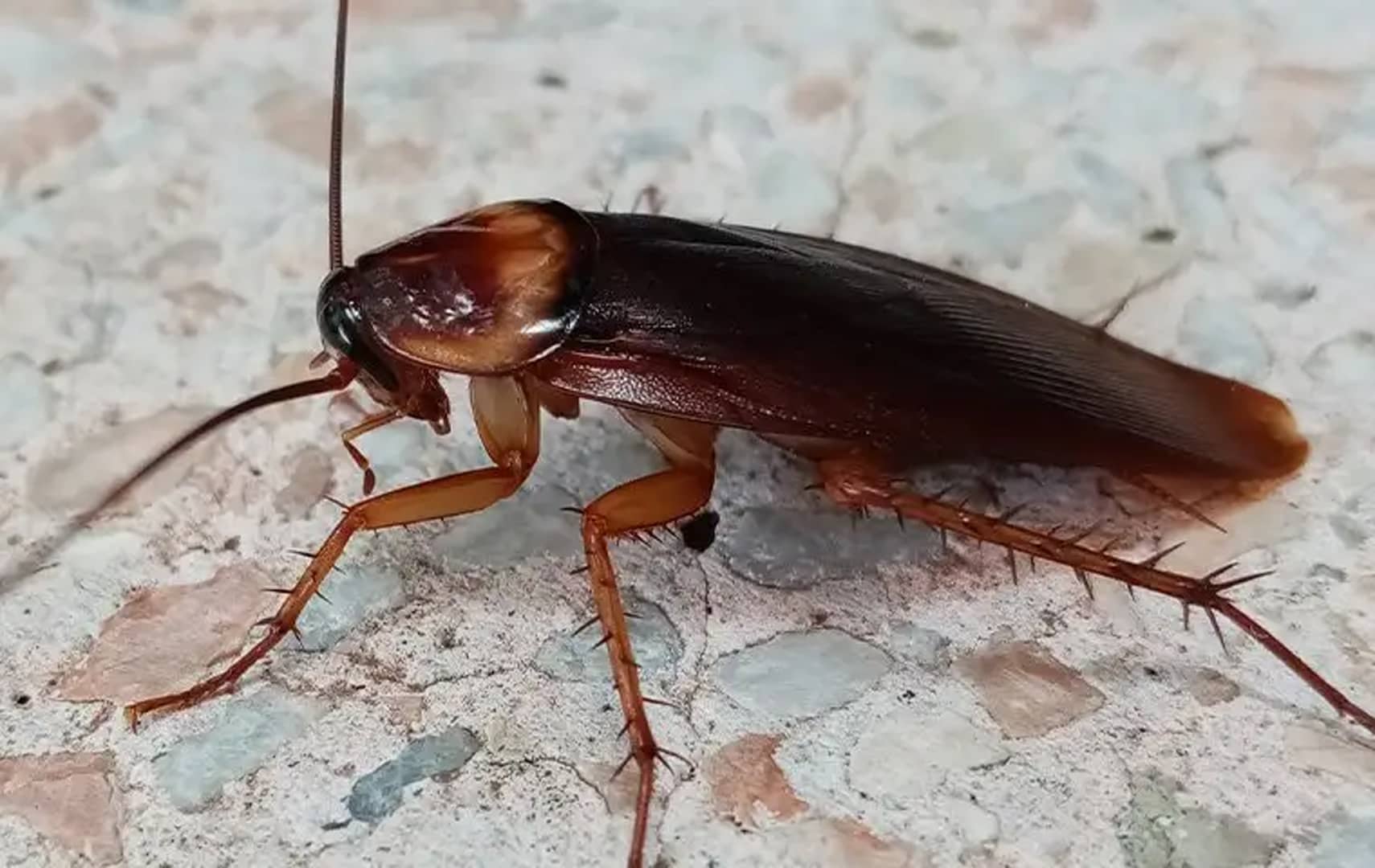- American cockroaches: Growing up to three inches in length, American cockroaches also go by the names “water bug” and “palmetto bug.” While they have reddish-brown bodies, there’s an eight-shaped sign on the back of their heads that makes them easy to identify.
- German cockroaches: German cockroaches only grow to be just over half an inch in length and are brown with horizontal bands that run behind their heads. They’re also the most common house-infesting roach in both the country and Florida.
- Australian cockroaches: Australian cockroaches are more common in tropical climates, including Florida. They have dark brown and yellow coloring and usually grow a little over an inch long.
- Oriental cockroaches: Oriental cockroaches, or Asian cockroaches, may get mistaken for German roaches, but they tend to be darker, glossier, and smellier.
How Dangerous Are Cockroaches In Jacksonville?
Certain species, like German cockroaches, tend to prefer unsanitary locations so they can feast on organic matter and reproduce. Unfortunately, all their time in sewers and drains means that cockroaches can be a health concern for your home, and here’s how:
- Cockroaches are associated with bacteria like salmonellosis, staphylococcus, and streptococcus, which they can bring into your home and contaminate your family and home.
- Cockroaches can worsen allergies and asthma symptoms, especially in younger children, due to an enzyme found in their saliva, droppings, and discarded skin.

How Difficult Are Cockroaches To Get Rid Of?
Getting rid of a cockroach infestation on your own may seem like it might save you time or money, but most of the time, it’s the opposite. Cockroaches reproduce quickly once they get inside your home, and they’re also small enough to hide in tiny cracks or crevices. It’s not unusual for an infestation to go unnoticed for weeks or even months, especially since roaches are more active at night than during the daytime.
Given how tricky they can be to combat, the best way to get rid of a cockroach infestation is with professional help from Trad’s Pest Control. With convenient scheduling, excellent customer service, and tough treatments designed for total cockroach elimination, we’ll make sure your Jacksonville home is completely roach-free.
If you’ve been finding cockroaches around your home or you’re seeing other signs of a roach problem, don’t wait for it to get worse—contact us at Trad’s Pest Control today to learn about our Jacksonville cockroach control services and how they could benefit you.
How To Prevent Cockroach Infestations
Along with using professional guidance when dealing with existing roach problems, it’s always a good idea to be proactive about cockroach control. Here are a few preventative steps for keeping these resilient roaches away:
- Ensure you’re not leaving leftovers sitting out and food products in sealed airtight containers or packages.
- Regularly empty your trash can before it’s full and make sure it’s sealed whenever there’s discarded food in it.
- Wash dirty dishes after meals and make sure you’re cleaning up crumbs and other scraps.
- Use caulk or a similar sealant to block off any tiny cracks and crevices that cockroaches can use to get inside.
- Declutter your home often to make sure you’re not providing cockroaches with more hiding spots.
- Deal with excess moisture problems like plumbing issues or standing water in your home.
- Get rid of yard debris sitting around your property and inspect items before they’re brought inside.
